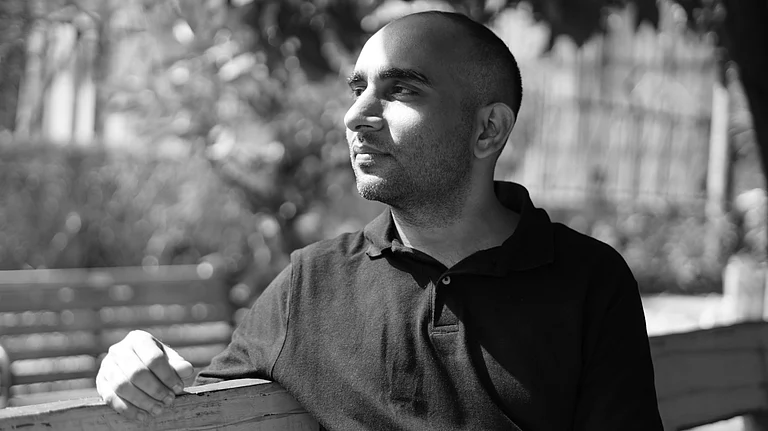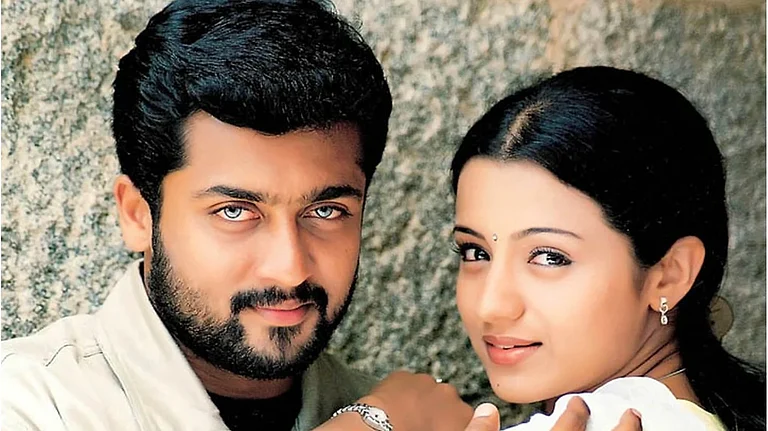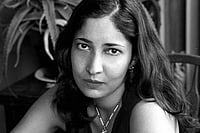As the cacophony around the conferral ofan archaic honour on Salman Rushdie becomes distant noise, two observations holdgood. Firstly, Rushdie remains one of the great English-language novelists ofthe 20th century though his contributions to the genre in thiscentury remain as yet unremarkable. Secondly, those who use offended 'sensitivities' to create political unrest and international incidents deservelittle regard. They are no friends of the religion and community they claim toespouse.
Rushdie has deservedly won recognitionfor his greater works including the 'Booker of Bookers' for Midnight'sChildren and various European national honours including the Commandeur del'Ordre des Arts et des Lettre in 1999. He may yet be in the running for aNobel. No prize comes, of course, without its own political baggage. The Nobel,for instance, tends to single out and honour individuals from non-Westerncontexts who are regarded as 'oppositional' in their own societies; suchcriteria aren't usually seen as relevant to European or American writers.Still, the Nobel is usually more focussed on the artist and her work thanknighthoods or peerages which are riddled with partisan quibbling, politicalwranglng, ideological judgements and, in more recent times, simple corruption.At the end of the day, it perhaps matters little that a once-beleaguered writerhas accepted a quaint honour from the British establishment and looks forward tohis day at the palace garden party wearing white tie and tails. RabindranathTagore, no conformist, also accepted a knighthood to the accompaniment ofcriticism though he later returned it in protest against the Jallianwalla Baghmassacre.
What this 'honour' and ensuingoutcry tell us about our times is that a once visionary and complex writer hasbeen transformed into a pallid celebrity, one of the people who are famous mainly for beingfamous. (Rushdie's recent novels, wherehe is too busy being a pastiche of himself to actually write well, indicate apreoccupation with celebrity culture). Meanwhile, those claiming to representhurt Muslim sentiments now resemble electronic puppets--only a provocative pushof the button is needed to set off a destructive frenzy. The trap is there. Whywalk into it every single time with such co-operative willingness? Perhapsbecause the people who actually suffer are neither the provocateurs nor theofficially provoked but ordinary people who will neither have read the book norseen the cartoons.
In a piece I wrote for The Guardianlast week, I suggested that although Rushdie was no simple neocon, as ZiauddinSardar and others have claimed, he has certainly become a very different kind ofpolitical animal from the one who evoked in brilliant prose, theinterconnectedness of all forms of chauvinism and tyranny. His early fiction ispopulated with monstrous and yet curiously human tyrants from across culturesand contexts, often based on real life prototypes: Mrs Thatcher, Oswald Moseley,General Zia, Ayatollah Khomeini, and Bal Thackeray among others. Satirising theRaj, his novel Midnight's Children is, in fact, an elegy for thebetrayal of the liberatory promises of Independence by Mrs Gandhi, famouslydepicted as 'The Widow' who oversees 'the smashing, the pulverizing, theirreversible discombobulation of the children of midnight'. Rushdie'sinnovative brilliance here drew onexisting literary traditions in the subcontinent embodied in works by SaadatHasan Manto and Faiz Ahmad 'Faiz' who lamented the 'stained dawn' ('yehdaag-daag ujaalaa') of a blood-soaked Independence for India and Pakistan. Evenso, he lamented Mrs Gandhi's assassination as an event that 'shames us all' who are'Indian by citizenship, or birth, or race'. In Shame,his novel of a place that 'may or may not' be Pakistan, he was at pains toshow that shameful events happen everywhere including England: that 'honour'killings and racist violence are shown to be kindred phenomena. In his prolificjournalism, he criticised a range of phenomena from anti-immigrant racism toimperialism, fundamentalism, Thatcherism, and censorship.
It can be argued that although Rushdiepublicly supported the invasions of Afghanistan and Iraq on ostensiblyhumanitarian grounds, he has continued to throw his weight behind liberalcauses. In 2000 he criticized racist killings by police in New York City,deprecated the Supreme Court's 2001 pursuit of Arundhati Roy and condemned the2002 pogroms in Gujarat. He satirised Bush's 'victory' in a poem entitled 'How the Grinch StoleAmerica'. He has also, unsurprisingly, spoken out forother writers like himself under siege by fundamentalist forces, Sikh, Hindu,Christian or Muslim. That said, I have failed to find anything by Rushdie thatcondemns the shutting down of the play My name is Rachel Corrie underpressure from what the 'highly organized attack machinery that will come after you if you express anykind of dissent about Israel's policies,' as playwright Tony Kushner describesit. Nor does he seem to have confronted repeated attempts in the Americanlegislature and university campuses to identify and muzzle 'anti-American'professors and course content.
The fatwa and subsequent relocation toAmerica did put in motion a transformation whereby Rushdie changed graduallyfrom a fiercely principled writer into one who was markedly less willing to beconsistently and equally critical of all forms of tyranny. Even when heacknowledged blatant wrongdoing on the part of the Bush administration, hiscriticism was muted and qualified. A writer who had once spoken of the 'folly' of trying to contain writers within passports now used an insistentand nationalist American 'we' in his newspaper columns (somewhat peculiarconsidering he had hardly spent any time in that country when he began to useit). This was not so much a subversive 'we' that spoke in the name of thevoiceless masses as a pronoun that tended to conflate government, foreign policyand people. The writer who once tried to show how fundamentalists andchauvinists of all kinds were brethren-in-arms now proclaimed without a hint ofirony: 'We must send our shadow warriors against theirs, and hope that ourswill prevail'. He began theorising and distancing himself from something hecalled 'anti-Americanism' or 'thesavaging of America by sections of the left'. Apparently, to criticise USforeign policy was to not recognise that it is 'individuals' not governmentswho make history.
More telling is his description of who afundamentalist is. It is no longer a category that operates across contexts andcultures but one that is clearly geared to identifying Islamists as the mainenemy: 'Such people are against, to offer just a brief list, freedom ofspeech, a multi-party political system, universal adult suffrage, accountablegovernments, Jews, beardlessness, evolution theory, sex'. As though there arenot Jewish fundamentalists also opposed to exactly the same things with theaddition of Palestinian existence and rights. Or Christian zealots opposed toall of these things with the exception of beards and procreative sex. Is Americaa shining example of a multi-party political system and accountable government?Rushdie's list of 'what matters' pays pious lip service to 'a moreequitable distribution of resources' while stressing 'kissing in publicplaces, bacon sandwiches and cutting-edge fashion' priorities rather specifcto upper-class metropolitan glitterati. (Could cutting-edge fashion be connectedto an inequitable distribution of the world's resources, one wonders?). TheMuslim diaspora, Rushdie then opines, have values that are at odds 'with theChristian, Hindu, non-believing or Jewish cultures among which they live'.
Had Rushdie not compromised himself soseverely, it would be easier for us to acknowledge the continuing relevance of someof what he says. He has rightly called for a fast-growing version of 'aself-exculpatory paranoid Islam' which blames 'outsiders' for all the illsof Muslim societies to be examinedand resisted. He has also called for the 'restoration of religion to thesphere of the personal', a call he might have extended more widely andforcefully to the driving forces in American politics today. Trouble is, what heonce undertook in the name of shared human values and goals, he now identifieslargely with the West, using culture-specific, parochial terms like 'TheEnlightenment' and 'Reformation' to call for change in non-Westerncontexts and cultures.
Rushdie and his allies in the West needto return to a more wide-ranging critical engagement with the present and withthe cultures outside the West which shaped him as a young writer. Equally,so-called representatives of Islam who find only books and images--not poverty,intra-faith violence, shame killings and dictatorial regimes--a source ofoffense need to stop being such willing puppets for every provocateur, real orimagined, who comes their way. Until this happens, the only winner will be thosewho espouse the specious but self-fulfilling prophecy of the 'clash ofcivilisations'.
Priyamvada Gopal, the author of LiteraryRadicalism in India, is Senior Lecturer of English, University of Cambridge


























